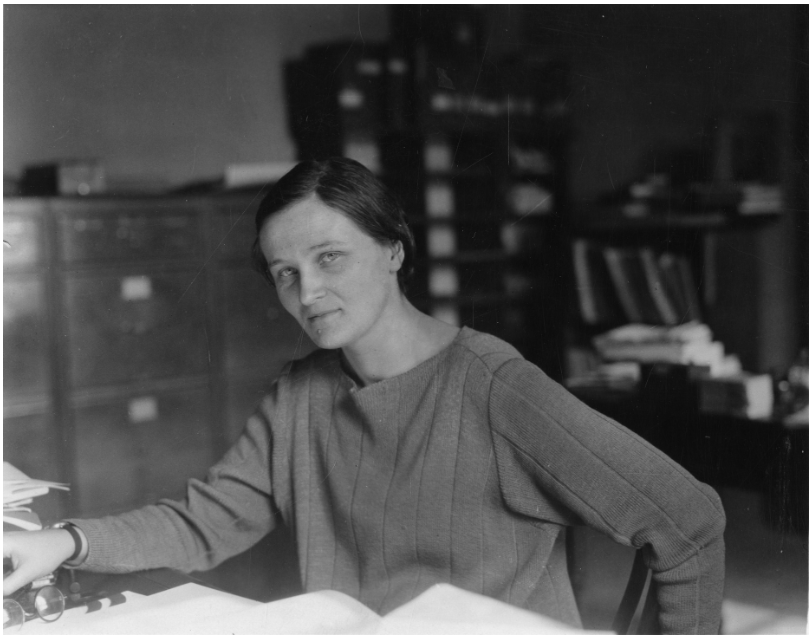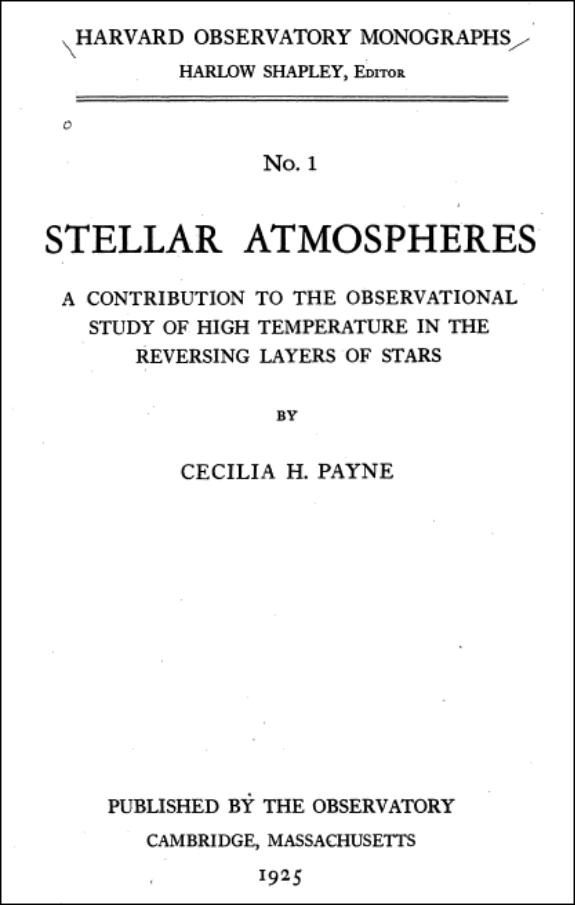“Twinkle twinkle little star, how I wonder what you are”
from a poem by Jane Taylor
This remarkable WAVE was born in England in 1900 and always knew she wanted to be a scientist. She entered Cambridge University, and chanced to hear a lecture by an astronomer named Arthur Eddington who spoke on Einstein’s Theory of General Relativity. She was exhilarated at the transformation of her view of the universe and decided to study astrophysics. Because of limited opportunities for her at Cambridge, she went to the United States to study at Harvard at age 23.
Her studies led her to study the spectrum of light that is emitted by stars as the light passes through prisms that are attached to telescopes. Each element gives off a particular pattern of different wavelengths, almost like a fingerprint. Payne was able to show that variation in patterns of stars was due largely to the temperature, and not to variations in composition. Her work showed that most stars, like our sun, are composed largely of hydrogen and helium, the lighter elements. Prior to this, most scientists assumed that stars were made of heavier elements. She presented her findings in her thesis in 1925. Her work resulted in the first doctoral degree awarded by Harvard Observatory. It was considered a landmark paper, but because of her gender, she could only carry the title of “technical assistant.” It wasn’t until 1956 that she was made a full professor and chair of the astronomy department at Harvard.
I became aware of Cecelia Payne while attending a recent online public lecture given by Dr. Allison Strom, an assistant professor of Astrology at Northwestern University. She is a delightful and enthusiastic astronomer that studies the evolution of galaxies and the lifespan of stars. She heads a team of gifted scientists that interpret some of the data transmitted from the James Webb Telescope to try to understand how galaxies form, how stars are born and how they ultimately expire. Strom and her team acknowledge that many of the techniques they use were developed by Cecelia Payne, and she is their inspiration.
The achievements of ambitious and brilliant women are often underrated, but they persist because they are fueled by a passion for knowledge. Payne sought empowerment through an institution that would publish her research, and tolerated the lack of professor status. Because she was offered this opportunity and embraced it, we all benefit. As Cecelia Payne said,
“Your reward will be the widening of the horizon as you climb.
And if you achieve that reward you will ask no other.”


